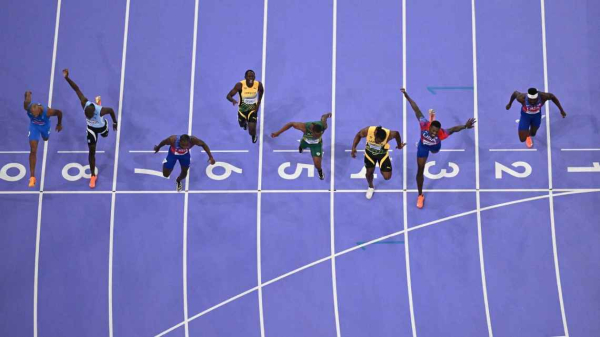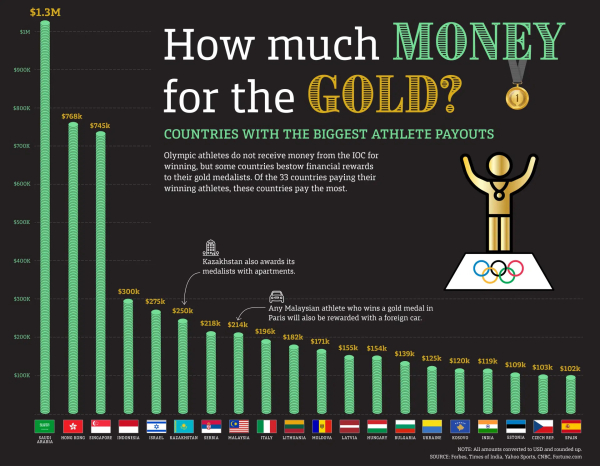The Olympics have officially concluded. For many, it was the ultimate display of the thrill of victory and the agony of defeat. For others, it's a way to boast about their country's medal count. If you're curious, here are the final medal standings.
One of the most captivating moments occurred in the men's 100-meter sprint. It made me reflect on how years of preparation can come down to a few thousandths of a second determining the difference between Gold, Silver, and Bronze — or virtual irrelevance.
Last week, Noah Lyles broke a 20-year U.S. drought in the men's 100m final, winning gold with a 9.784 time.
Lyles came into the race ranked No. 1 in the world, but he had to run his fastest time ever to win the Olympic gold medal, and he did so by the slimmest of margins — 0.005 seconds.
In that race, Lyles achieved an average speed of 25.7 mph, and his max speed hit 27.84 mph.
Surprisingly, Lyles didn't lead the race until the final and most important moment. Many thought that Jamaica's Kishane Thompson had the gold … but advanced technology showed that Lyles surged ahead in the final stretch, edging Thompson out by a split second to claim victory. Here is the photo finish.

via ESPN
It took over half a minute (much longer than the race itself) for the judges to announce the winner – it was that close.
As a tech nerd, what I found most interesting about the win was the camera used to certify the win.
Omega, which has been the official Olympics timekeeper for decades, released a new camera that shoots 40,000 frames per second, aimed directly at the finish line.
It reminded me of the facial recognition technology NFL teams like the Dallas Cowboys use to track – theoretically – every person who steps into a stadium. The cameras are so good that when a crime is committed, they can completely track the perpetrator as they travel throughout the stadium. The Cowboys' security office boasts that their camera system surpasses even the ones used by Las Vegas casinos to catch cheaters at the gaming tables. However, it seems like Omega has taken things to a whole new level at the Olympics with its advanced camera technology this year.
Many think the 200m race is Lyles' specialty. His personal best of 19.31 seconds in the 200m is the American record, making him the third fastest in the event.
Unfortunately, Lyles couldn't grasp gold in the 200. He got Bronze instead. However, after the race, he revealed that he ran the race with COVID … which might explain his drop in performance. Still, it stands as a testament of will to me.
As a side note, while the International Olympic Committee does not pay athletes for winning at the Olympics, many countries do!

via Voronai
While the U.S. isn't near the top of the list – American athletes who get gold bring home $37,500. A silver nets you $22,500, and a bronze nets you $15,000.
Of course, these medals can also lead to other compensation and endorsements – but the payout table was still interesting.
The achievements of athletes like Noah Lyles create national pride and open doors to numerous opportunities and rewards.
Meanwhile, the integration of advanced technology in the Olympics highlights the importance of innovation in sports. As we celebrate these victories, we also look forward to the future advancements that will continue to shape the world of athletics and the world itself.

Leave a Reply